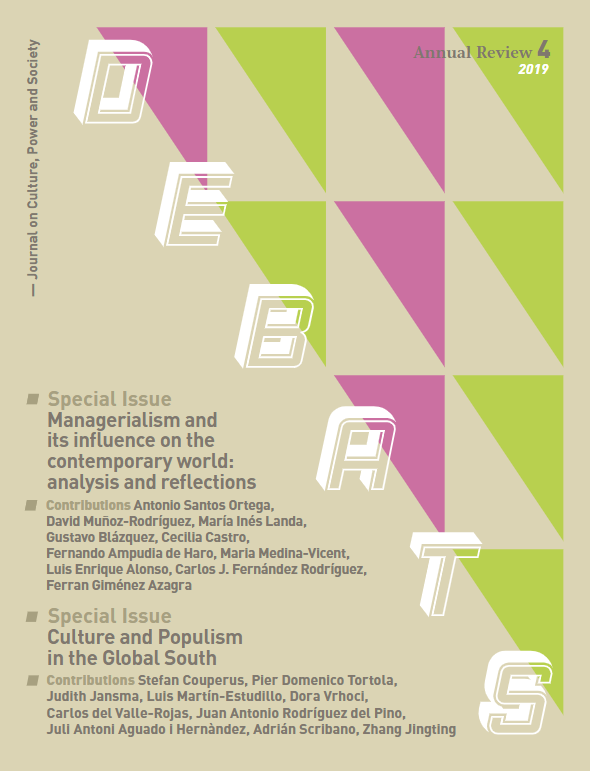Paradise Lost: Explaining Populism as a Response to the Fragmentary Nature of Time, Space, and the Rapid Pace of Technological Advancement
DOI:
https://doi.org/10.28939/iam.debats-en.2019-12Resumen
Contemporary societies and technologies are evolving at an ever-swifter pace. Advances in the field of Augmented Reality (AR) and in Computer Science at large have led to games that let us immerse ourselves in worlds stuffed with zombies, robots, or pokemon critters. Globalization is making the world ever more interconnected, and the development of diverse social media platforms is changing the way people engage with politics and culture in their daily lives. Time and space have arguably never been more liquid, fragmentary, and compressed. Against this host of developments, Postmodern ideas on the fragmentation of time and space,
the rupture in personal and national identity narratives, as well as the concept of «utopia,» can provide theoretical tools, shedding light on how various agents react to the rapid pace of technological change (such as Information and Communications Technology (ICT) and digitalization), and subsequent alterations in Man’s perception of time and space. This paper reconstructs the key tenets of Postmodern thinking on cultural phenomena, showing how the changing experience of time and space (induced by globalization, and technological advances) bear on the recent successes of populist parties in Europe and beyond. Furthermore, the paper places populists’ narrative of and nostalgic mourning for an ideal past in a longer continuum of utopian and dystopian thinking. This is then interpreted as an attempt to build a vision of a homeostatic space that, once conceptualized as a rhetorical tool, serves to forge
bonds among ‘(good) people
Descargas
Descargas
Publicado
Cómo citar
Número
Sección
Licencia
Sin perjuicio de lo dispuesto en el artículo 52 de la Ley 22/1987 de 11 de noviembre de Propiedad Intelectual, BOE del 17 de noviembre de 1987, y conforme al mismo, los autores o autoras ceden a título gratuito sus derechos de edición, publicación, distribución y venta sobre el artículo, para que sea publicado en Debats. Revista de cultura, poder y sociedad.
Debats. Revista de cultura, poder y sociedad se publica bajo el sistema de licencias Creative Commons según la modalidad «Reconocimiento - NoComercial (by-nc): Se permite la generación de obras derivadas siempre que no se haga un uso comercial. Tampoco se puede utilizar la obra original con finalidades comerciales».
Así, cuando el autor o autora envía su colaboración, acepta explícitamente esta cesión de derechos de edición y de publicación. Igualmente autoriza a Debats. Revista de cultura, poder y sociedad, la inclusión de su trabajo en un fascículo de la revista para que se pueda distribuir y vender.











